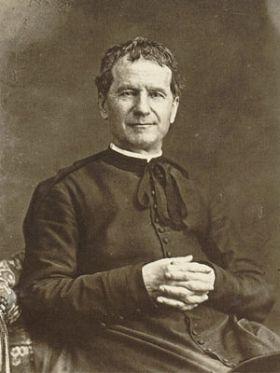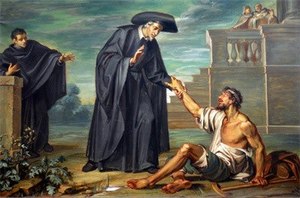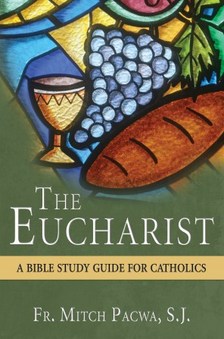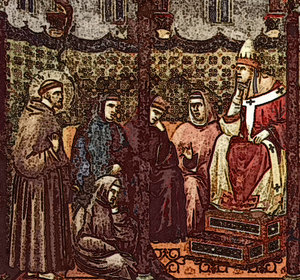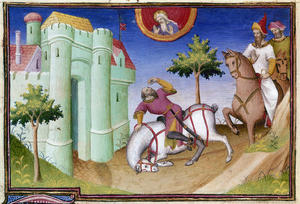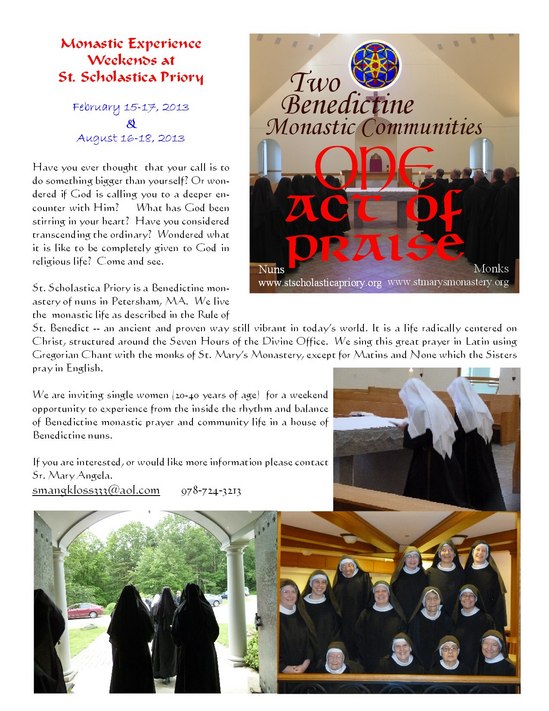It’s time to ask: what are you doing for Lent? How are you preparing for a time of change of mind and heart?
If you are following the Mass according to the Missal of Blessed John XXIII, today is Septuagesima Sunday, a time to make preparations, to start to clean one’s house. Ash Wednesday is in 18 days. So, the Church in her wisdom us start a period of preparation to ease us into the discipline of Lent. We always need a transition; we need a process to move from thing to another: being called into the Vineyard of the Lord requires our reliance on God’s grace to avoid sin and live in the Light. I remarked to someone today that just ended the Season of the Nativity only jump into the Season of Calvary.
The Ordinary Form of the Mass doesn’t have a comparable season of preparation; the OF will bring those who follow that Form through the beginning stages of Jesus’ proclamation of the Kingdom.
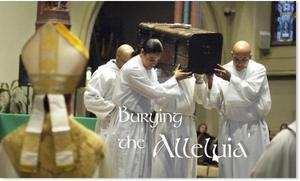
The Extraordinary Form of the Roman Rite sets aside the singing of the Alleluia; the singing of the Gloria. In fact, in some monasteries and now in some dioceses, like the Diocese of Paterson (see the picture) that there is a brief ceremony that visualizes the removal of the Alleluia from our liturgical vocabulary at this time of the liturgical year. The omission of these prayer texts gives a somber sense. The priest wears purple vestments as a sign of preparation.
The Eastern Christians have also begun their preparation for Lent with a series of preparatory Sundays. The Byzantine Churches will observe Meat-Fare (Sunday of the Last Judgment) and Cheese-Fare (Sunday of Forgiveness) Sundays.
As the result of the work of Saint Gregory the Great, that is, since the 6th and 7th centuries we have three Sundays preceding Ash Wednesday that set off Lent called Septuagesima, Sexagesima, and Quinquagesima, meaning respectively, the seventieth, sixtieth, and fiftieth days before Resurrection of the Lord. The First Sunday of Lent is Quadragesima which is the beginning of the Lenten fast of forty days.
Father Mark recalls for us the biblical typology of our faith:
“The seventy-day period that begins with Septuagesima recalls the seventy-year exile of the children of Israel in Babylon. Seventy is the perfect number, signifying that God has fixed for us a delay of mercy to pass from the anguish of sinful Babylon to the beatitude of Jerusalem. “How shall we sing the Lord’s song in a foreign land?” (Psalm 136:4). We do well to recall Pope John Paul II’s assertion that, “the power that imposes a limit on evil is Divine Mercy.” The seventy days before Pascha signify this, and so become a season of hope for all who sit and weep by the waters of Babylon (cf. Psalm 136:1).
At the same time, the history of the world is divided into seven ages. The first is from the creation of the world to the flood; the second, from the renewal after the flood to the call of Abraham; the third from the covenant with Abraham to the call of Moses; the fourth from Moses to King David; the fifth from the reign of David to the Babylonian exile; and the sixth from return from captivity to the birth of Christ. With the birth of Our Lord comes the seventh age: the appearance of the Sun of Justice who rises over the world “with healing in his wings” (Malachi 4:2). This seventh age of “these last days” (Hebrews 1:2) stretches until Christ’s second coming as Judge of the living and the dead. The seven weeks before Pascha are a review of salvation history.


